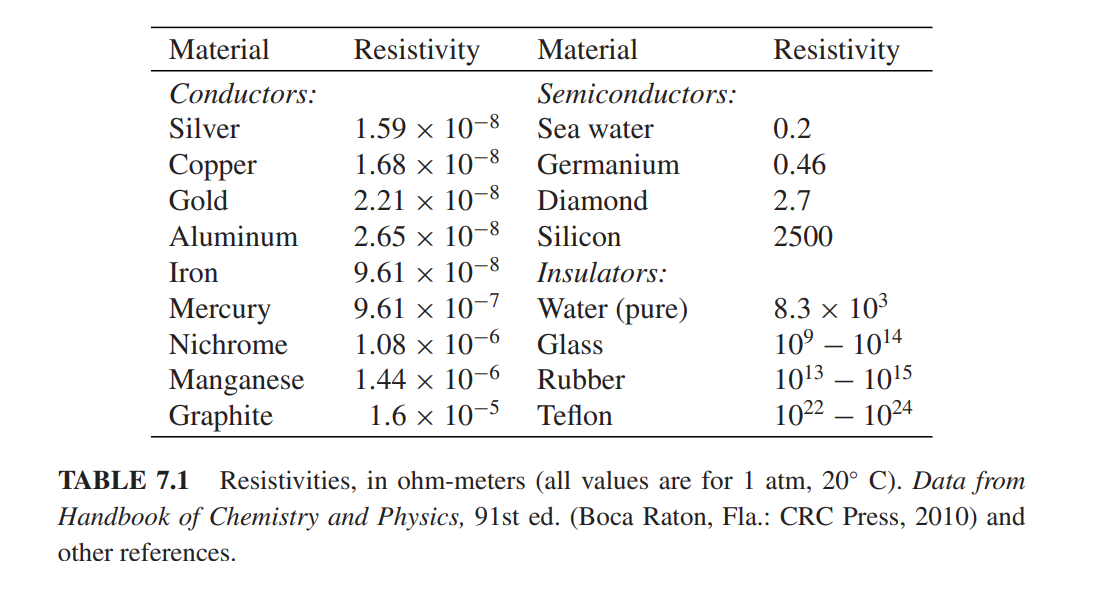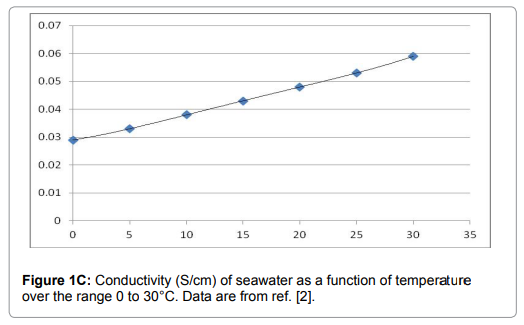I came across a table in Griffith Introduction to Electrodynamics (2nd edition, p 297), which shows a table of various resistivities for different materials. I found it surprising that sea water is listed as a semiconductor here.
As it turned out, I could not find much online agreeing or disagreeing with this. Wikipedia introduces semiconductors as the following:
A semiconductor is a material, which has an electrical conductivity value falling between that of a conductor, such as copper, and an insulator, such as glass. Its resistivity falls as its temperature rises; metals behave in the opposite way.
I am not sure about the second property here, and I was wondering if sea water, as an electrolyte solution, actually exhibits this effect.


